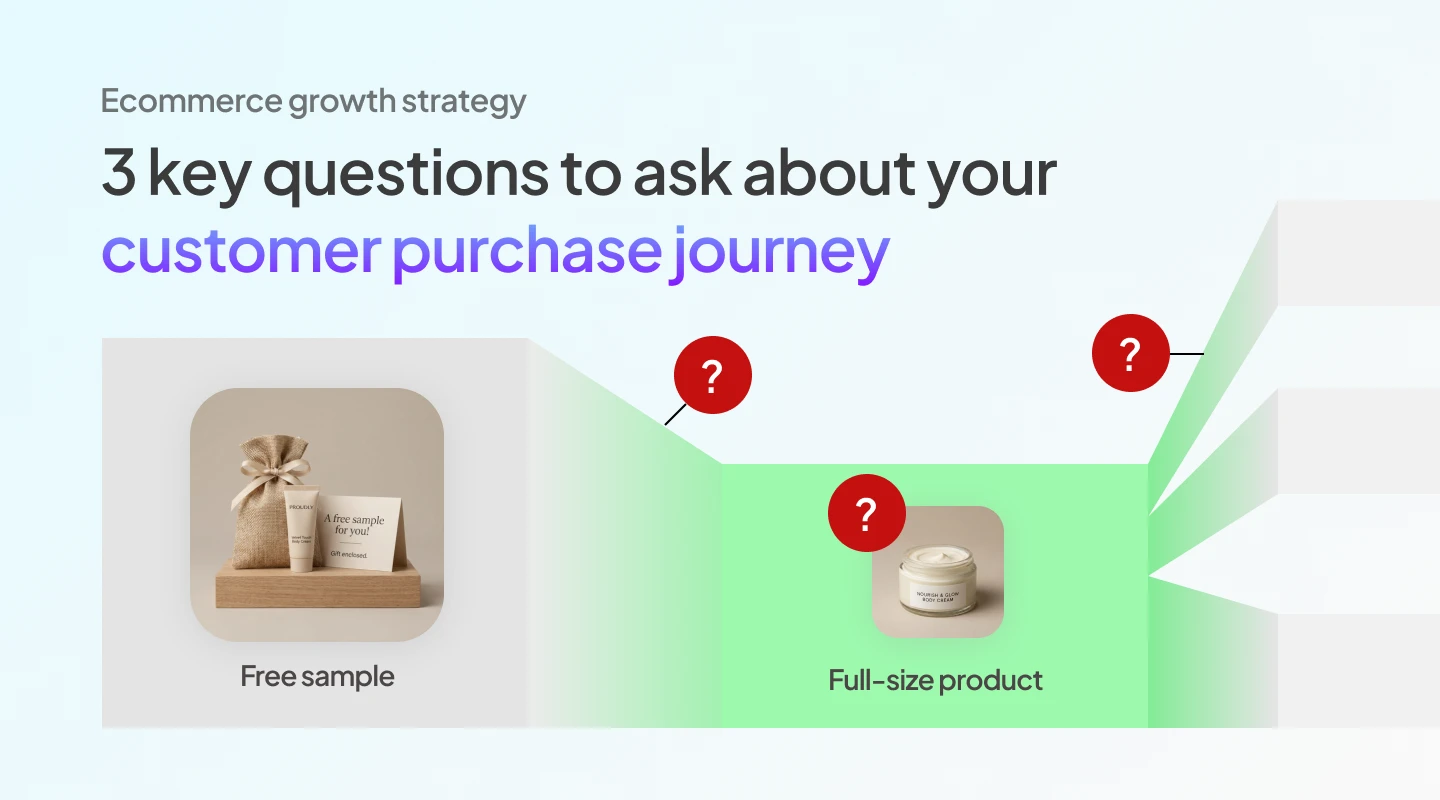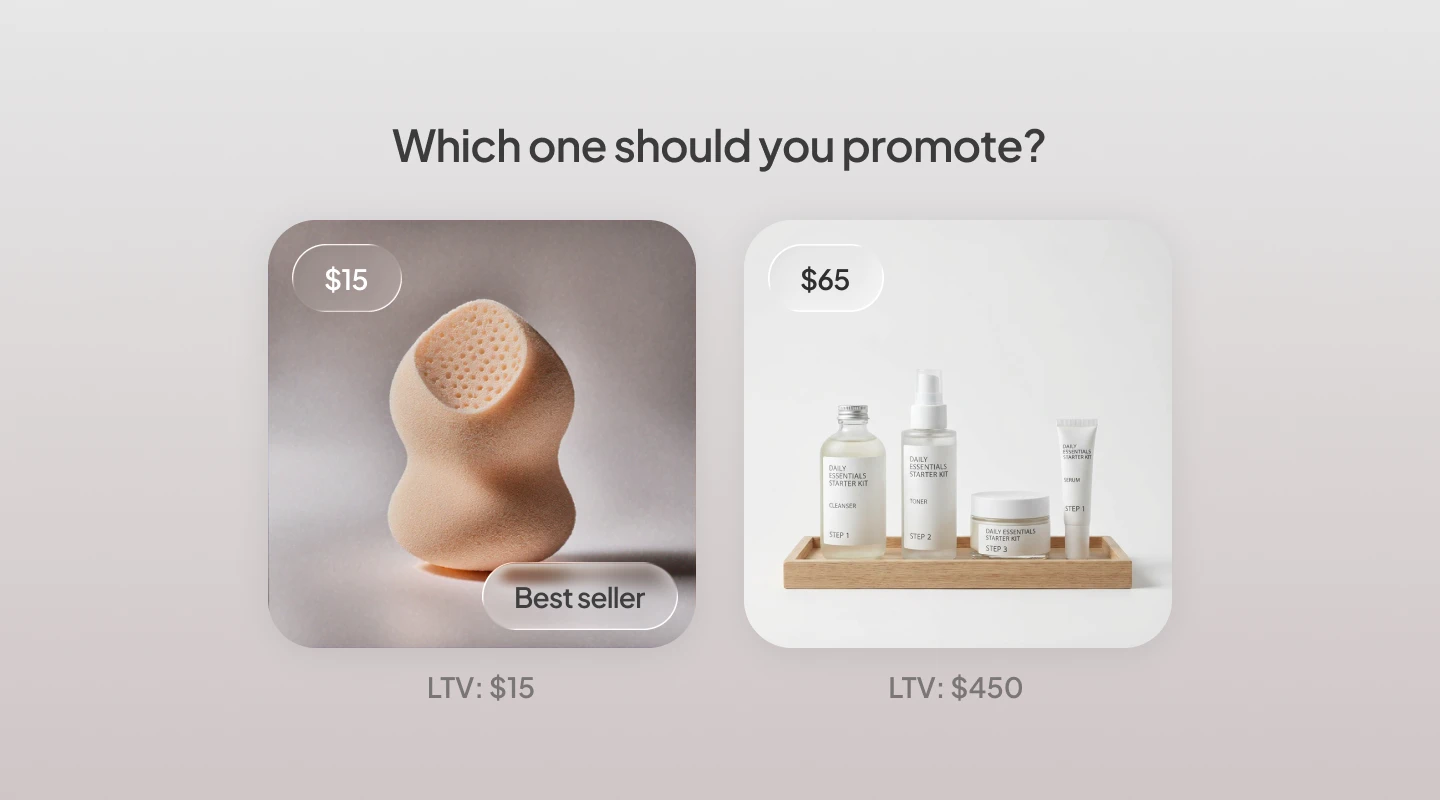.webp)
See what behavioral segmentation looks like in action, and find out how you can leverage behavioral data for your ecom business.
If you spend enough time researching e-commerce marketing tactics, it won’t take long to come across the concept of behavioral segmentation.
Behavioral segmentation is just one form of customer segmentation, but it’s not quite as easy to understand as segmentation methods involving clear-cut things like gender, age, or location. Marketing segmentation, particularly behavioral segmentation, is crucial as it divides customers based on their interactions and behavior patterns with a business, enhancing the understanding of customer actions and improving targeting strategies.
Rather, behavioral segmentation centers on data pulled from real customer actions, like purchase dates or email open metrics, to organize customers based on how they behave on your site and where they are in the customer journey.
Unlocking this data, which you can do with our Shopify app Segments Analytics, can help you improve customer lifetime value (CLV) and bring in more revenue.
To better understand the power of behavioral segmentation has to optimize your marketing, let’s break down exactly what behavioral segmentation is, and look at a few real-life examples from businesses that are already using it
Once you’ve analyzed the data and created touchpoints within your customer journey, you can begin to group customers together—for example, with Segents, you can create more than 30 customer groups like “loyals” and “most likely to churn” and “high spenders.”
Understanding the types of behavioral segmentation, such as purchase behavior and customer loyalty, is essential for creating these groups effectively.

With these groups in place, you can tailor your messaging and the timing of your marketing to encourage different types of customers to take specific actions—such as purchase something they’ve abandoned in their shopping cart, or come back for a repeat purchase at just the right time.
Behavioral segmentation examples
It can be hard to understand the true value of behavioral segmentation until you see it in action—so let’s do just that. By focusing on behavioral segmentation, businesses can significantly enhance brand loyalty, ensuring that customers receive a personalized experience that caters to their interests. This strategic approach not only aims to foster customer loyalty by dividing customers based on their dedication to the brand but also focuses on increasing customer satisfaction. Through personalized marketing and loyalty programs, businesses can retain their customers and prevent them from switching to competitors, ultimately driving growth and gaining a competitive edge in the market.
Here are three real-life behavioral segmentation examples, from people who are already using Segments Analytics to drive their businesses forward.
Example 1: A small, well-timed gift makes a big impact on customer loyalty and CLV
Soft Services
Soft Services offers high-quality skincare products, and by the time they started using Segments Analytics, they already knew the power of behavioral segmentation.
When assessing their customer data, Soft Services identified a lotion that was one of their top sellers. They noticed a pattern—loyal customers were purchasing refills of the lotion after a certain amount of time, on average.
But there were still many customers who didn't make a second purchase. They began to wonder—what if we found a way to remind customers who had purchased this lotion that it was time to buy again?
Their customer service team let the marketing team know there was a common complaint among customers who had purchased this product. When they got to the end of the bottle, they couldn't reach the last of the product inside.
With these customers segmented out, they decided to try an experiment. They created a test group of around 200 customers, and mailed these individuals a small spatula—just big enough to get out the last bit of lotion.
Then they compared this test group to their control group—people who had purchased the lotion but didn't receive the spatula.
“Pretty quickly, we saw that our test group was higher value than those who didn’t receive the gift,” said Rebecca Zhou, founder of Soft Services. “They made more purchases and had a longer customer lifetime value. We never would have known how successful this campaign was without behavioral segmentation.”

Example 2: Behavioral segmentation brings a 24% increase in conversion rates for abandoned carts
White River | Read the full case study
Anyone who runs an online eCommerce store will be familiar with the idea of abandoned carts—when customers demonstrate interest by adding products to their cart, but then move on without making a purchase.
Related: Increase customer retention via email marketing with these 5 easy-to-follow tips
White River sells some of the most elegant hardwood mouldings and wood carvings on the market. They were well aware of their higher-than-average cart abandonment rate, and were eager to find a way to encourage more customers to complete the customer journey and make a purchase.
That’s where behavioral segmentation came in. White River used Segments Analytics to gather fact-based information about the average customer lifecycle.
Their data analytics revealed the purchase timings of the first customer order, comparing those made within the first 24 hours and those made sometime within the following 30 days.
Now that they had a better picture of their customer habits, they set to work changing the dates and times of day they sent their emails and text messages. And the results were impressive: they saw a 345% increase in conversion rate from abandoned carts, and a 235% increase in SMS abandoned cart automation.
“With Segments the guessing is replaced with science,” says Richard Enriquez, Director of Marketing & eCommerce at White River.
.webp)
Example 3: Smart customer segmentation brings a 400% quarter-on-quarter revenue boost from email marketing
shortyLOVE | Read the full case study
Even if you target a specific audience with your business, you’ll still lose out if you treat them like a monolith.
shortyLOVE knows about this firsthand. The company makes high-quality bags for women that don’t sacrifice style for functionality. But even though they already had a targeted audience, they knew with behavioral segmentation, they could go even deeper and learn more about the women who made up their customer base.
Using Tresl Segments, the company create a lifecycle group containing 12 different customer segments based on purchase history—in other words, they began leveraging behavioral segmentation.
They had groups that demonstrated high value, like “loyals” and repeats”, and also identified areas of opportunity—customers who had only recently signed up, or who had made just one purchase.
With this data, shortyLOVE revamped their email marketing strategy to align their messaging with the different segments. For example, customers who were already loyal to the brand would receive detailed insights into the design of the bags, while those in the opportunity groups would get more sales-focused emails.
In just a few months, the company saw massive results—their email marketing revenue shot up by 400% the quarter after they leveraged behavioral segmentation.
“Segments is a must-have Shopify app for any store serious about scaling their online eCommerce growth,” said Mobile Marketing & eCommerce Executive Rob Grossberg, from shortyLOVE.
.webp)
Start using behavioral segmentation for your business
If you found these examples inspiring, then you can start using customer segmentation, including customer loyalty behavioral segmentation, to learn more about your customer behavior—and likely see the same results. This approach is crucial for identifying key customer groups, especially your most loyal customers, and understanding their needs through customer loyalty segmentation.
Thousands of customers are already using Segments Analytics to fine-tune their marketing strategy based on their audiences purchase actions, customer loyalty segmentation, and other behaviors, targeting and retaining valuable customer segments effectively.
Want to find out more about what your customers are doing and how to engage and retain your most loyal customers through personalized incentives and marketing strategies? Try Segments Analytics free for two weeks, and unlock the data you need to grow your business.







